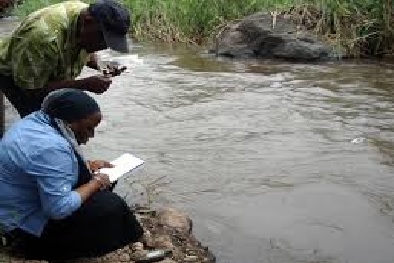The Phase II for the NEPAD CoE in Water Sciences and Technology in Africa (ACE WATER-2) is a project supported by The Commission's Directorate-General for International Cooperation and Development (DG DEVCO), a body responsible for designing European international cooperation and development policy and delivering aid throughout the world. In this context, DG DEVCO is supporting the establishment of a Human Capacity Development Programme of the African Ministers’ Council on Water (AMCOW) for the water sector in Africa and to expand the NEPAD initiative to the Eastern and Central African region. The project also aims at improving the regional capacity development, scientific and technical data analysis, management and sharing (On-line Atlas on Regional Water Cooperation, water resources security and Sustainable Development Goals (SDGs), Water-Energy-Food Security Nexus assessment).
The kick-off meeting of the phase II programme launched and presented the phase II to the Centres of Excellence, stakeholders, and partners by:
- Presenting the objectives and two components of the project: the component “scientific activities” led by the JRC the component “human capacity activities” led by UNESCO;
- Discussing and outlining potential collaborations and planning implementation of foreseen activities (general discussion and in groups);
- Discussing and planning the setup of the new Eastern and Central African Network; and,
- Developing the 1st year implementation plan.
NEPAD launched the Southern Africa and Western Africa CeE Programmes in 2009 to specifically identify and reinforce R&D capacities in Africa through building regional networks of Centres of Excellence in water sciences. This program is in line with Africa’s Science and Technology Consolidated Plan of Action (CPA). In Southern Africa, the Centres are coordinated by the University of Stellenbosh (South Africa), and include members such as the International Center for Water Economics and Governance in Africa (Mozambique), KwaZulu-Natal University (South Africa), Western Cape University (South Africa), University of Malawi (Malawi), University of Zambia (Zambia), University of Botswana (Botswana), The Council for Scientific and Industrial Research CSIR (South Africa), and the Polytechnic of Namibia (Namibia),
In Southern Africa, these institutions are contributing to research and development interventions in the region, and through the Southern Africa Development Cooperation (SADC) are playing a role in the implementation of the regional work programme. It is in this context that R&D institutions are critical to achieving inclusive growth and sustainable development at regional and Pan-African level.
